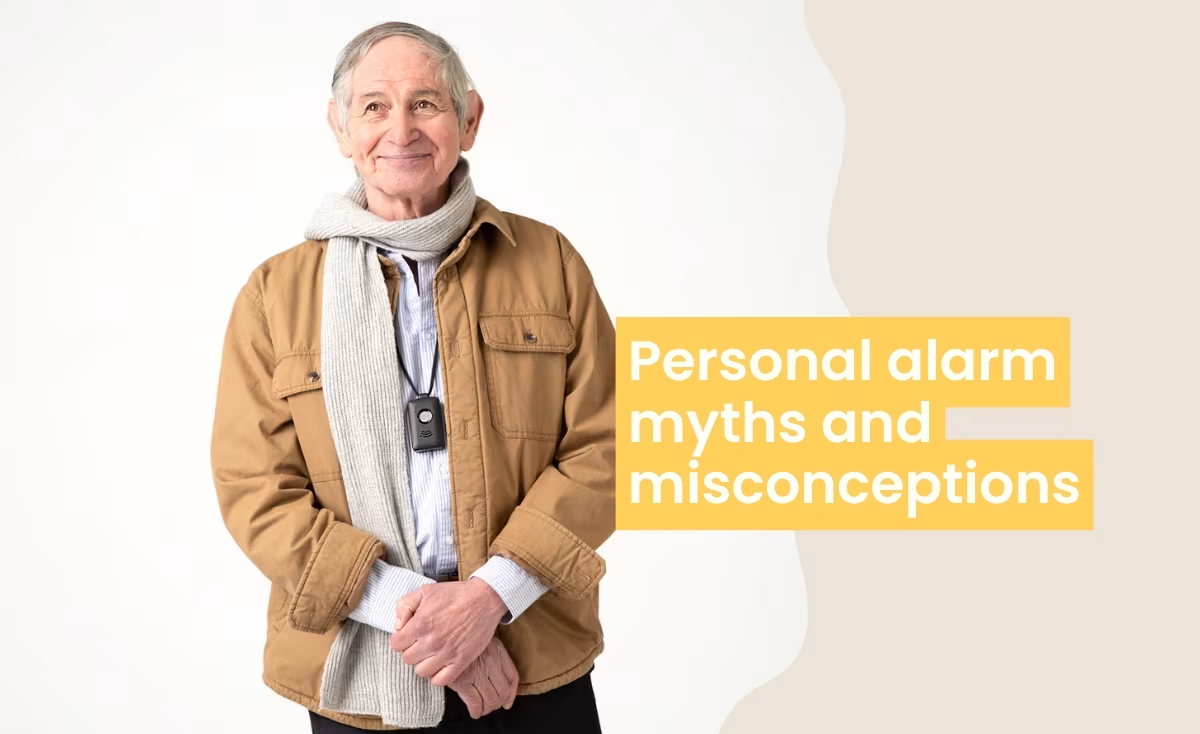Navigating a Fall: A Practical Guide
.jpg)
In 2024, falls made up the largest share of MePACS alarm activations, accounting for nearly 38 percent of all incidents reported to our Response Centre.
Falls can happen to anyone, and knowing how to handle them can make a significant difference in the outcome.
This practical guide will explain the steps to take after a fall, potential consequences, rehabilitation, and suggested safety measures.
What to do after a fall
Whether you are at home or out and about, a sudden fall can be scary and unsettling. If you do fall, try to remain as calm as possible and assess your condition. Rushing to get up or doing so incorrectly may make an injury worse. Pay attention to any sharp pain, dizziness or disorientation, as these may be a sign that you are seriously hurt. Next, take note of any hazards, such as a slippery floor or broken glass, before you move.
Check for Injuries:
Determine if you can move without pain. If you feel dizzy, disoriented or suspect an injury, such as a broken bone or head injury, do not attempt to get up.
Get Up Safely:
If, after assessing your situation, you feel confident that you can get up, it’s important to do so safely to minimise the risk of further injury. This illustrated NSW Government fact sheet offers some step-by-step instructions on how to get up following a fall. Practicing this method may help you gain confidence in getting off the ground.
If you believe that getting up could cause further harm, stay where you are and call for help. If you feel unsure or unsafe in any way, focus on getting help instead of attempting to get up by yourself.
Tip: Wearing a monitored personal alarm with fall detection, like the Mobile Alarm or Solo Connect personal alarm watch, ensures that help is available 24/7, even if you are on your own.
The dangers of a ‘long lie’
Periods of immobility following a fall that exceed one hour can lead to hospitalisation and pose significant health risks, especially for older adults.
The sooner help arrives the better the outcome.
Personal alarms have been shown to be an effective strategy, when used appropriately, to prevent a long lie after a fall. Research has shown that the MePACS emergency response service resulted in approximately one-third of ambulance attendances being avoided.
Post-fall check up
Falls can indicate underlying health conditions, medication side effects, balance impairments, or muscle weakness. A medical check-up with your GP or care specialist can help detect and manage potential health issues.
The psychological effects of falls
Frequent falls and the persistent fear of falling can have a profound impact on your overall wellbeing and quality of life. Sadly, fear of falling may increase the risk of future falls, as it can cause you to limit your daily activities.
This, in turn, can result in weakened lower limb strength, further reducing mobility, physical function, and increasing the risk of social isolation.
Recovery and rehabilitation
Recovering from a fall can be challenging, both physically and emotionally. Health professionals including physiotherapists, occupational therapists, and exercise physiologists can assess your capabilities and home environment, and provide a personalised recovery program and strategies to help minimise the risk of future falls.
Enhancing safety measures
For those at risk of falls, a monitored personal alarm with fall detection is a simple yet effective way to improve safety during emergencies, particularly in serious situations involving unconsciousness or immobility.
MePACS monitored personal alarms are connected to our 24/7 emergency response centre, where trained professionals respond promptly to every call, ensuring you receive the right help quickly.
We also suggest installing a secure key lock for spare home keys, ensuring easy access for emergency services when necessary.
Conclusion
Understanding how to navigate a fall and having the right tools in place can greatly enhance your safety and confidence.
While falls prevention is the best safety measure, consider the added security and peace of mind of a monitored personal alarm to ensure timely help is always within reach.



.png)

